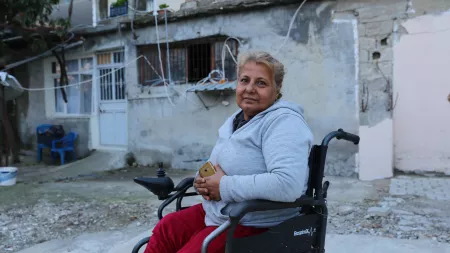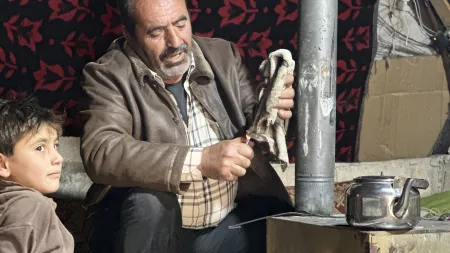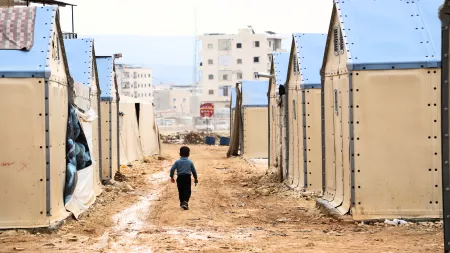Gaziantep, 6 February – Today marks one year since a series of earthquakes struck southern Türkiye and northwest Syria. Across the most severely affected regions, thousands of families continue to face recovery challenges amidst temperatures hovering close to or below 0°C, while the humanitarian response remains largely underfunded, posing severe risks for the future of millions of people.
Turkish and Syrian communities reside in precarious conditions, either within formal container sites or inadequate shelters near their devastated homes and neighborhoods,said Rishana Haniffa, Director of CARE Türkiye.
"Many people have scant access to resources and services, limiting their capacity for recovery. Insufficient funding for Türkiye's humanitarian earthquake response is worsening the situation and people are losing hope," added Haniffa.

In Hatay, the hardest hit region, ongoing challenges such as water scarcity and inadequate sanitation facilities pose substantial health risks, especially for the vulnerable such as young children, the elderly, and people with disabilities. Transportation disruptions also remain a major concern, affecting access to livelihoods, education, healthcare, and social services, particularly for residents in remote rural areas or poorly connected formal sites.
Northwest Syria: conflict slows recovery
Across the border in northwest Syria, amid the lingering impacts of the February earthquakes, communities have grappled with shortages of humanitarian funding and a renewed escalation of violence. This has further deepened the suffering of the over 4 million people living in dire conditions in winter.
In 2023, following the earthquakes, communities witnessed ongoing food shortages and a continued inflation in food prices, making four out of five Syrians in the northwest region food insecure,said Haniffa.
“2023 also witnessed the most significant escalation of hostilities to be recorded in the last four years. Due to the shortage of funding, humanitarian actors, including CARE, are asked to prioritize one vulnerable life over another this winter,” warned Haniffa.

Growing needs, dwindling support
In 2023, CARE in northwest Syria reached 42,000 households with food vouchers and cash assistance and 9,000 households with ready-to-eat meals. Due to funding cuts, in 2024, those numbers will significantly reduce by approximately 45 percent and 83 percent respectively.
Considering the increasing needs this winter, including heating and warm clothes, and the soaring prices of essential items including fuel, individuals may resort to negative coping mechanisms such as forced early marriage, borrowing money to buy food, engaging in child labor, skipping meals or reducing overall food consumption,said Haniffa.
As of December 2023, the Humanitarian Response Plan for Syria, requesting $5.41 billion, has secured only a third of the required funding. Simultaneously, the humanitarian response in Türkiye is facing similar funding challenges.
"One year after the earthquakes, we emphasize the responsibility of governments and donors to promptly address the lasting impact and long-term socioeconomic risks associated with the earthquakes in both Türkiye and war-torn Syria. Without sufficient funding, the humanitarian crisis in both countries will only deepen."
For media inquiries, please contact Iolanda Jaquemet, Senior Humanitarian Communications Coordinator, CARE International via: [email protected].
